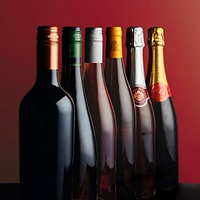Responsible drinking
Your body benefits from cutting down, taking a break or going alcohol free
Whether it’s introducing one drink-free day a week or a month-long break during Sober October or Dry January, the cultural shift towards responsible drinking is making more of us reconsider our alcohol intake.
Passionate about helping customers keep their health at the forefront of their minds, we’ve put together some advice to help you be mindful of your alcohol consumption with recommendations for no, or low, alcohol alternatives.
Tips for cutting down on your weekly intake
- Try having a number of alcohol-free days each week
- Browse our range of no- and-low alcohol options.
- Make a mocktail. Find recipe inspiration here.
- Try mixing wine with sparkling water to make a spritzer - you’ll drink less alcohol but still enjoy a drink.
- Switch to bottled beers instead of pints to cut down on the amount you drink.
- Check the size of your wine glasses. A small glass of wine is 125ml but at home we tend to be more generous, so go easy.
- Invest in a spirit measure so you don’t overpour, and try having a long gin and tonic with a 25cl measure instead of a glass of wine.
Allergens and wine
You may have noticed a change to our wine labels when we introduced allergen information. Egg and milk proteins are commonly used to clarify wines during the wine making process. Under UK law we are obliged to label these allergens, as well as sulphites, when they are used in our wines accordingly. The egg and milk proteins are removed during processing and are unlikely to cause an effect to milk- or egg-allergic individuals.
For more information
Find out more about alcohol and your health:
www.nhs.uk/livewell/alcohol
(opens in a new tab)


